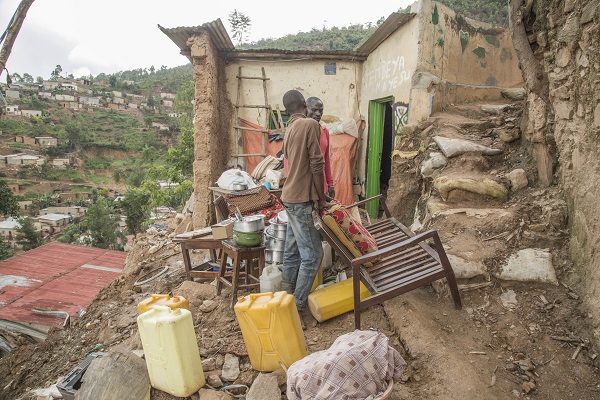
Rwanda seeks solutions to housing crisis
Baca Juga

Rwanda remains one of the most densely populated countries in Africa.
Yet like the rest of the continent, it continues to grapple with a housing crisis as limited land competes with other needs such as agriculture.
The country has also been struggling with the growing number of people living in high risk areas and prone to flooding and landslides.
As of March this year, more than 48,000 households in Kigali were living in these dangerous zones according to statistics from Rwanda Housing Authority.
To address this problem, Rwanda has been rolling out model villages across the country that seek to give people in rural areas decent housing while moving people in high risk areas to safer grounds. It is a model that also clusters houses using innovative an building concept that ensures more houses are accommodated within a small land area.
These one-stop villages are guided by the country’s Vision 2020 that targets to have moved up to 70 percent of the population in the rural areas in planned settlements by 2020.
This, through such unique houses within the 30 districts across the country.
The target seems well within reach. Just recently President Paul Kagame launched the Karama Model Village in a district located in the capital Kigali.
Meant to accommodate 240 vulnerable families, the village which was constructed by the Rwanda Defence Force (RDF) Reserve Force, consists of residential blocks and a suite of amenities among them health facilities, a modern market, electricity and water connection, an Early Development Centre, secondary school with sports facilities and an extensive road network. It has also been equipped with a poultry farm with more than 9000 chicks and six greenhouses allowing those living in the village to farm and access the modern market.
This, while also investing in an elaborate waste treatment system.
With Rwanda being a frontrunner in ICT, the model village has also equipped the school with ICT facilities even as it rolls out fibre optic internet across the entire village.
“This model village shows that Liberation is not simply about words, it is about action. It is an example of what we can accomplish and that we can do a lot more. You must each play your role, beginning with taking care of the home you were given. Liberation means believing that a good life is not a right only reserved for others, every Rwandan deserves it,” said President Kagame during the launch of the village.
So far over 4,200 households have benefited from the 130 model villages that have been constructed countrywide with 70 of these villages being in IDP camps according to the Ministry of Infrastructure.
Experts hail the concept as holistic and an example worth emulating for the rest of Africa in designing modern settlements that respond to 21st century needs.
“What sets the Rwanda model villages apart from the rest of the developing countries housing projects is their wholesomeness. The concept of not just building homes for people with a view to giving them a good life, but ensuring they have something to do with their lives after relocating to new homes. So you have schools, farming projects, internet connectivity and health facilities among others. This addresses so many other social ills that would crop up with people trying to adapt to new life including domestic violence, school dropout and unemployment,” said Dr. Maximillian Habimana an urban development expert in Kigali.
The model villages have equally been pivotal in addressing poverty by placing key activities like farming and small businesses at the hands of the people in these villages.
Government data from 2016 posits that an estimated 376,192 households, (about 1.5 million people) live in extreme poverty. The second category, estimated to be about 3 million, are at risk of sliding into severe poverty they once lived in. It is these two categories that the villages have adequately addressed.
The post Rwanda seeks solutions to housing crisis appeared first on Nile Post.

0 Response to "Rwanda seeks solutions to housing crisis"
Post a Comment